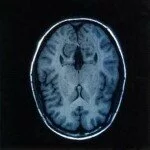 |
Find Your Medication |


Scientists say brain stimulation could combat obesity
An article tells of the potential for an obesity treatment that utilizes "deep brain stimulation."
In the August edition of Neurosurgery, the official journal of the Congress of Neurological Surgeons, an article tells of the potential for an obesity treatment that utilizes "deep brain stimulation" (DBS). DBS consists of surgically attaching an eletrode to the brain that disrupts the brain's normal functioning, and has been proven to be effective in managing symptoms of Parkinson's disease. It's also been shown that DBS may have positive effects on obsessive-compulsive disorder, addictions such as tobacco use and various other psychological ailments. Recently, Medical Express cited an article published in the American Journal of Psychiatry saying that DBS could also help treat Tourette's syndrome. According to the Centers for Disease Control and Prevention, the American obesity epidemic cost the US $147 billion in healthcare expenses in 2008, and more than a third of Americans struggle with a severe weight problem. The condition is a major risk factor for type 2 diabetes, meaning excessive body fat could lead an individual to buy Actos at Canadian and international online pharmacies to treat their insulin deficiency. In the article, lead author Alexander Tagha of Ohio State University and the University of Southern California notes that some chemical treatments for obesity come with dangerous side effect. Furthermore, bariatric surgery does not always produce the desired results. Earlier attempts at applying DBS to fight obesity focused on the hypothalamus, the source of the hormones that determine an individual's eating habits. However, these new findings relate to what the paper describes as the "relative imbalance" of the brain's "reward circuitry," which can theoretically be "turned off" by a small, high-frequency electrical pulse. Scientists compare obesity to anorexia, finding opposite brain reactions In more obesity and reward circuitry-related news, a study published in the journal Neuropsychopharmacology looked into the possible connections, or lack thereof, between the brain chemistry of obese people and anorexics. WebMD states that anorexia, a disorder characterized by self-starvation due to an out-of-control fear of weight gain, can eventually cause heart and kidney problems, as well as osteoporosis for which an afflicted individual could buy Actonel or buy Fosamax. Studying the mental reactions of 21 anorexics and 19 obese individuals to various stimuli, scientists determined that the brain response to anticipating a tasty reward is blunted in obese individuals, but enhanced in anorexics. |
See also ...
- AAP statement: Recess key for healthy kids
- Study finds cancer screening rates lower than U_S_ goal
- Study shows keeping emotions bottled up can be unhealthy
- CDC study looks at cardio health of states and healthy participants
- Governor Brown being treated for prostate cancer
- High blood pressure may speed up cognitive aging
- New associations found between depression and heart failure
- Testosterone low in young men with obesity
- This red fruit may boost your health
- Loss of smell linked to neurological conditions
- Science unveils the wandering mind
- Insulin-blocking protein unraveled
- New biomarkers could result in better prevention and treatment for type 2 diabetes
- The battle over BPA wages on
- New research links cell death during cardiac events to calcium overload
- "The Biggest Loser" helps science understand weight loss extremes
- Study finds increased risk of cardiovascular disease with poor diabetes care
- Small amounts of exercise can improve morale of overweight adolescents
- Doctors put heads together to tackle difficult-to-treat depression
- Too much glucose control for diabetes patients may cause aspirin resistance
- Apples could improve heart health by lowering "bad" cholesterol
- Dark chocolate improves memory in snails
- African spiny mice regenerate skin without any scars
- International study bolsters understanding of heart disease and stroke
- Lack of sleep may increase diabetes risk, study finds
- Retired military leaders say many Americans are 'Too Fat to Fight'
- Knee replacement revision procedures on the rise, research shows
- High schoolers protest healthy lunches
- Combat-related PTSD may improve with integrated treatments
- Aging population could have ongoing impact on economy
- Yogurt consumption linked to low blood pressure
- New study says ginkgo biloba does not enhance memory or thinking
- Sugary beverages linked to weight gain
- Researchers try to pinpoint risks of alcoholism relapse
- Sibling-less children are more prone to obesity, study says
- Alcohol abuse is a better indicator than dependence for hereditary risk, according to study
- Working out reduces stress and anxiety, study says
- Lives of women preserved by breast cancer screening, Australian research says
- Insomnia is rampant in the UK
- Heart attack care and outcomes are notably bad for women under 45, says study
- Teens who have oral sex are likely to engage in other risky sexual behavior
- New Alzheimer's treatment is proven ineffective
- Pumping iron could reduce one's risk of type 2 diabetes
- Scientists work on a cure for type 1 diabetes
- Olympians are not immune to osteoarthritis
- New drug therapy approved for breast cancer
- Researchers alter behavior in monkey using optogenetics
- No difference in metabolic rates found between hunter-gatherers and desk workers
- HIV funding is critical despite economic crisis
- Air pollution linked to depression
| IMPORTANT DISCLOSURE: All medical content and news articles on this website is supplied by an independent third party company. While the information can be useful, this website relies on others for its creation and cannot guarantee the accuracy, medical efficacy, or reliability of the information provided. In all circumstances, you should always seek the advice of your physician and/or other qualified health professional(s) for drug, medical condition, or treatment advice. This website does not provide any medical advice. The content provided on this website is not a substitute for professional medical advice, diagnosis or treatment. |
- Terms & Conditions
- |
- Privacy Policy
- |
- Shipping Policy
- |
- My Account
- |
- Refill Prescription
- |
- Product Search
- |
- How to Order
- |
- Customer Service
- |
- About Us








